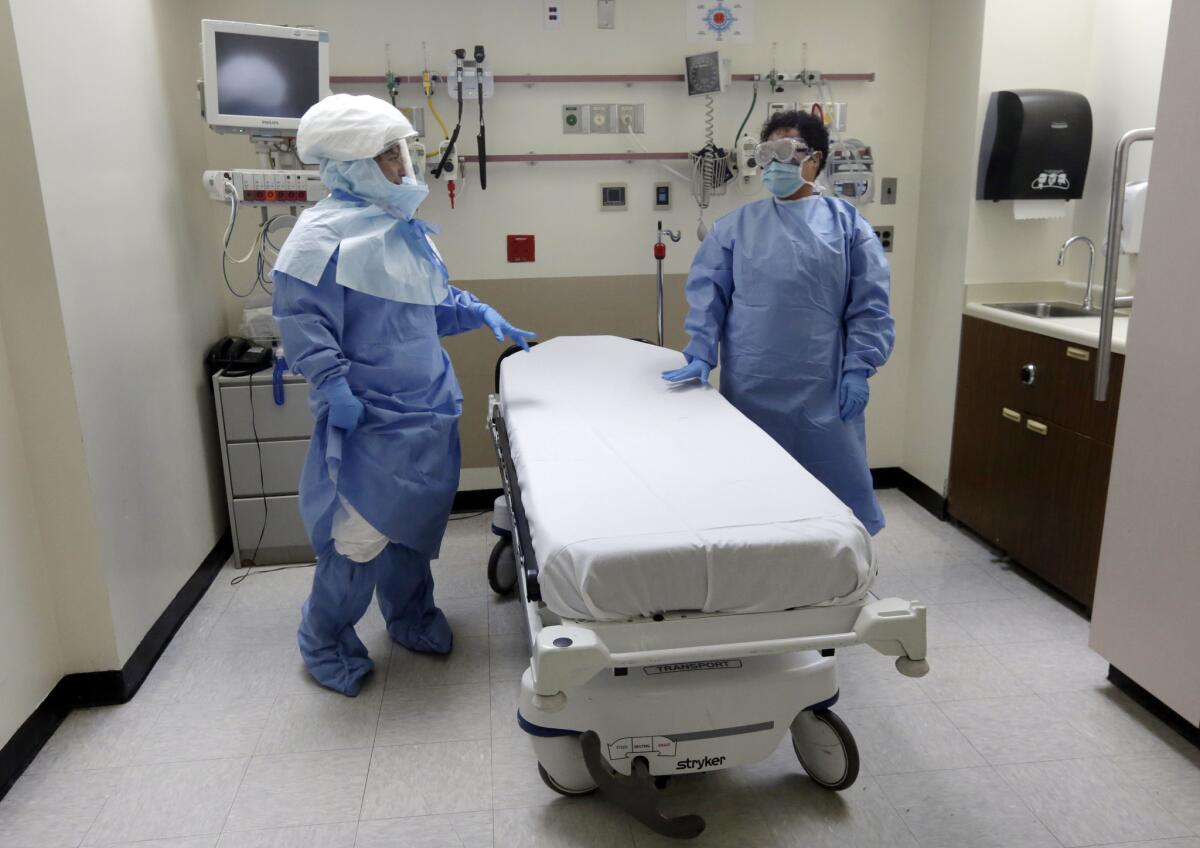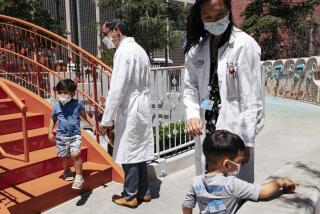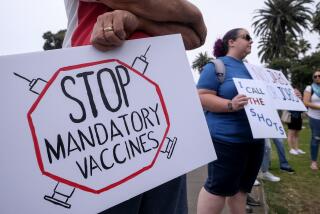Editorial: Does an Ebola quarantine make sense?

Neither side in the Ebola quarantine debate has presented enough facts to buttress its beliefs about healthcare workers returning to the U.S. from the three afflicted West African nations. But the weight of evidence falls strongly against the use of mandatory quarantines for those who worked with Ebola patients.
The safest, most conservative step obviously would be to require volunteers returning from the front lines to stay at home for 21 days, the incubation period of the disease. But look at the reality: Of the hundreds who have worked with Doctors Without Borders and other groups and have returned to their home countries over the last six months, there is not a single known instance in which any of them has infected others. Health officials in New York City are acting with an abundance of caution to track down people who might have been exposed to Craig Spencer, the doctor who was diagnosed after his return (and after he traveled around the city and went bowling). His case prompted New York and New Jersey to tighten their quarantine rules, but the chances that anyone is in real danger are extremely low.
At the same time, though, the government officials and nonprofit aid agencies opposing quarantines have been less than thoroughly persuasive in arguing that quarantines would be so onerous for overseas volunteers that many would decline to help anymore. They have offered no real proof but have merely suggested broadly that a quarantine period would serve as a “disincentive.” In any case, Doctors Without Borders already advises its volunteers not to return to work for three weeks after a tour of duty.
If there were evidence that firm quarantine rules would prevent significant illness, then more stringent policies would be justified. But recent history tells a different story: With the exception of two Dallas nurses who appear to have been issued inadequate protective garb when treating Liberian visitor Thomas Eric Duncan, who died of the disease, no one in this country has fallen ill from contact with infected people. Duncan lived in close quarters with family for at least two days during which he was very sick and obviously contagious, yet neither his family nor anyone in the broader community with whom he had contact has fallen ill.
Maryland and Virginia have adopted more sensible and flexible rules, under which each traveler from the stricken region is assessed individually and subsequent rules depend on the level of risk. Health officials must watch and adapt as the picture evolves, but from everything we know at this point, the chances of anyone catching Ebola in Spencer’s favorite bowling alley are minuscule.
Follow the Opinion section on Twitter @latimesopinion
More to Read
A cure for the common opinion
Get thought-provoking perspectives with our weekly newsletter.
You may occasionally receive promotional content from the Los Angeles Times.






